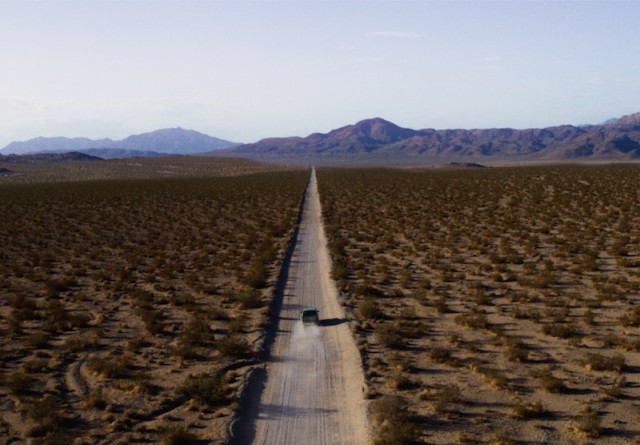Nick Dugan’s short film, his MFA thesis short from Chapman University, is a neo-western dealing with drugs and crime. Sure, that describes roughly a thousand (mostly terrible) short films a year, and yes, You’re Now Beyond Hope, Arizona, is forced to walk a fine line in order to avoid self-parody. But the risk of mockery does not come from the direction you might expect. Whereas films of this genre over-index on trying to be macho and cool, Dugan’s short is shockingly—achingly even—sincere. A film about pain and grief, addiction and self-loathing, it is a big-hearted attempt at reconciling these sorts of human themes into what is, ostensibly, a crime thriller. You may still end up rolling your eyes at points but the tonal novelty of Dugan’s story, paired with high production levels and a pair of stellar supporting performances, won this critic over.
Hank is an addict. Alcohol, drugs, gambling—you name it he’s got a problem with it. We begin the film in a motel complex as Hank attempts suicide, then failing that, attempts escape. The necessity of escape comes from Harper, who is staying in the next room over. A mid-level loan shark, he is leveraging Hank’s debt in order to turn him into an enforcer for his organization. Part of Harper’s ploy is to ease Hank into a lifestyle of violence via a steady supply of liquor and cocaine. Hank, however, still holds onto the hope of getting clean. After sneaking away to an Alcoholics Anonymous meeting, he is impressed by Lucy, the tough-as-nails sponsor who begrudgingly agrees to meet for a follow-up. Only then does he discover that Lucy is the target for his first hit.
One of the first things you notice about You’re Now Beyond Hope, Arizona is that it is a fine-looking film. This is a compliment I provide less and less these days, as the overall quality of image-making in shorts has soared due to the increased accessibility of professional-level equipment and knowledge, yet Joshua Ladd’s DP work here is superior. The desert setting provides a lovely backdrop for some drone shots, but even basic scenes are lit and blocked with a sort of naturalistic drama. Moreover, the camera movement is sharp—not particularly fancy, but full of unshowy pushes and pulls that accentuate the scene in classical ways.

The splendor of the landscape is used sparingly but effectively to set the scene.
This sort of formal excellence buys the film and Dugan goodwill, as aspects of the film border on cliché and strain credulity. Why is Harper so accommodating of Hank? Is low-level muscle really that difficult to find? Why would the bookie allow Lucy, already deep in debt, to go “double or nothing” on a final bet? There are also big plot points—the suicide attempt and the reveal of Hank’s defining trauma—that push the film towards melodrama and are only reined in by the excellence of the performances.
Ultimately, what these critiques indicate is that the film is less a crime drama that shoehorns in a discussion of addiction and self-compassion, but a treatise on addiction with crime-story elements layered on. Dugan mentions to us that the primary motivation behind the story was his first and secondhand experiences with alcohol and drug abuse, but more specifically though, was his complaint about the faith-based nature of most sobriety groups. For those that don’t know, the ubiquitous “12 Steps” movement is faith-based, and a key component of its teachings is for the addict to admit they are powerless in the face of their disease and to “surrender” themselves before God. This is a controversial tenet for many, Dugan included, and the advice that Lucy provides Hank, that he is not “powerless”, provides the film its 2nd act turning point.
Love, redemption, and the capacity for change—these are the sentiments that Dugan is most interested in and they are really tricky! Pairing them with cliché crime elements and melodrama shouldn’t work! Yet, somehow, the restraint exercised in You’re Now Beyond Hope, Arizona avoids cheesiness. It’s a tonal tightrope and, more than anything, is what impresses me about the film and Dugan. Sincerity is back in fashion, and a good adult drama like the ones Hollywood used to be good at hits the spot nicely.

 Jason Sondhi
Jason Sondhi